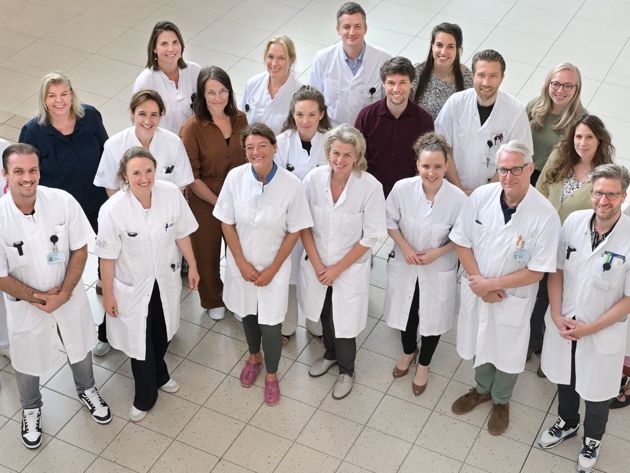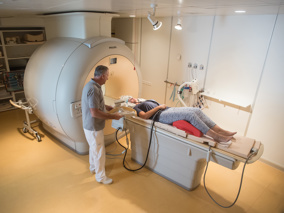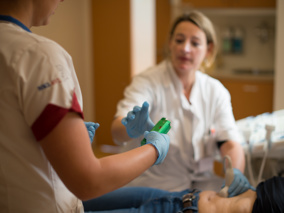Brain tumors
A glioma is a tumor that arises from the brain cells themselves. Brain cells are called glial cells. Glial cells ensure, among other things, the strength of the brain tissue. There are different types of glial cells. The most important are astrocytes and oligodendrocytes.
A glioma that arises from astrocytes is called an astrocytoma. A glioma that arises from oligodendrocytes is called an oligodendroglioma. A glioblastoma is the most common type of glioma
Learn more about gliomas
Causes of gliomas
The causes of gliomas are still unknown. Predisposition plays a role in very rare cases. If you have had cranial radiation in the past, it can increase the risk of a brain tumor.
There is no evidence that diet, smoking, alcohol, cell phone use, or any way of life is related to the development of gliomas.
In the Netherlands, about 1200 people are diagnosed with glioma every year. These are often people who are over 40 years old. But it also occurs in younger people.
Symptoms of gliomas
The symptoms of a glioma are different for everyone. That depends on the place in the brain where the glioma originates. The symptoms can be:
- headache
- nausea and vomiting
- paralysis (arm, leg or half of the body)
- Balance problems
- Epileptic seizures
- Problems talking
- Problems with vision
- Behavioral change and/or forgetfulness
Waiting
We want to inform you as well as possible about the waiting time per condition. We do this based on a prognosis of the current waiting list. The waiting time can vary from patient to patient for various reasons. Your attending physician will give you more information during your outpatient consultation.
-
4 days
First appointment
This is approximately how long it will take until you have your first appointment
-
14 days
Surgery
We aim to remove malignant tumors within 14 days.
-
4 days
Second opinion
This is approximately how long it will take before you come in for a second opinion at the NKI
 nl
nl


